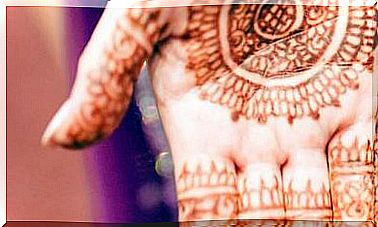Meditating Heals And Changes Us: Go Ahead And Try It
Science shows that relaxation has important benefits for our physical and mental health. Also in cancer patients

Decades of research and the use of meditation and relaxation practices such as mindfulness in clinical settings have proven their full benefits in cancer patients, stress states and depression.
Nowadays we already speak of mind-body medicine in the West, although in the traditions of some Eastern countries –such as India, China and Tibet– we speak of body-energy-mind, meaning energy is the connection space between body and mind. mind, and its expression as breath and word / sound.
Overcoming this distance, there were two pioneers – both in Massachusetts (USA) – who paved the way for meditation practices to be integrated as secular into Western culture, with scientific support.
Relaxation response
Herbert Benson recognized the “relaxation response” (1975) of the parasympathetic system in order to control our stress or “fight or flight” reaction from his research on Transcendental Meditation at Harvard Medical School (1975).
Benson observed that in the meditative state of relaxation there is a slowdown in metabolism, heart rate, and respiration, which positively affects brain activity.
Jon Kabat-Zinn opened a stress reduction clinic in 1979 at the University of Massachusetts Medical School. Based on the Buddhist practice of mindfulness meditation, and renewing the Buddhist aspect, in 1988 he created the MBSR (Mindfulness Based Stress Reduction) system, which he found to reduce stress and pain, and increase the feeling of well-being.
In 1993, his work was featured on Bill Moyers’ PBS public network television special Healing and the Mind, sparking public interest in mindfulness meditation, by Kabat-Zinn and in particular for its MBSR system.
Benefits of meditation
In the following decades, meditation practices gain more force in the public consciousness, supported by the numerous academic and scientific studies that are carried out.
At the MD Anderson Cancer Center, we began offering meditation in 1999 for all those “touched” by cancer (patients and also their families and support people). The following year, and with the advent of the new millennium, we began to use and investigate meditative techniques – mindfulness and Tibetan meditation – as a complement to the treatment and prevention of cancer and as a method to stop smoking.
And in addition to the aforementioned research, and thanks to it, we currently offer meditation focused on breathing to reduce stress, with Tibetan sounds for cognitive problems after chemotherapy sessions, and with movements to help with insomnia and sleep problems.
Lately we have looked at the benefits of these Tibetan breathing meditation classes, with Tibetan sounds and with Tibetan yoga movements, and we have observed that, after just one session, people with cancer reported a clinically significant reduction in their fatigue symptoms, anxiety and depression, and a greater sense of well-being.
And on the other hand, after a meditation session, the caregivers also reported a clinically significant reduction in symptoms of fatigue, shortness of breath and anxiety, at the same time, a greater sense of well-being.
We also looked at the effects of guided meditation during the breast biopsy, noting that it helps reduce anxiety during the procedure, and we are currently seeing that practices such as hypnosis could also reduce stress and anxiety during catheter procedures.
Thanks to the path forged by Herbert Benson and Jon Kabat-Zinn almost four decades ago and the media support of Bill Moyers, the scientific studies of various universities and research centers continued. And these ancient techniques of Buddhist adepts reach the West today in a secular way to benefit millions of people, in societies where daily stress is increasing.









